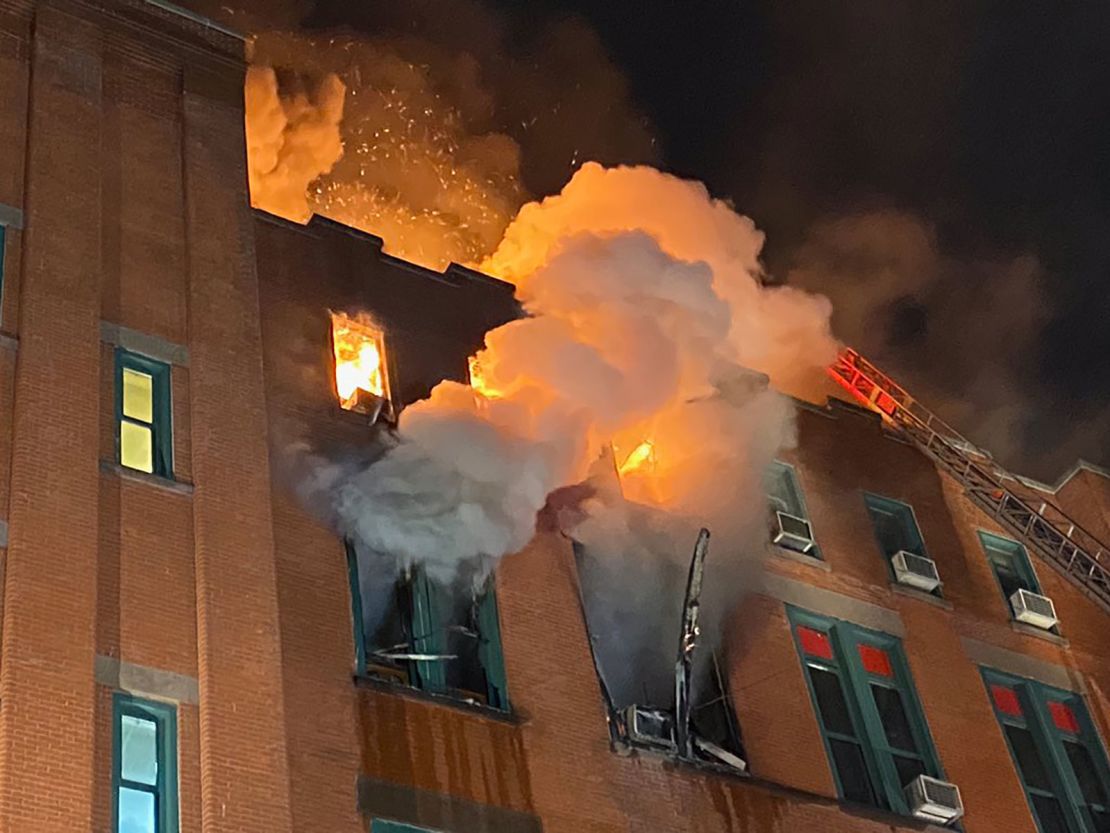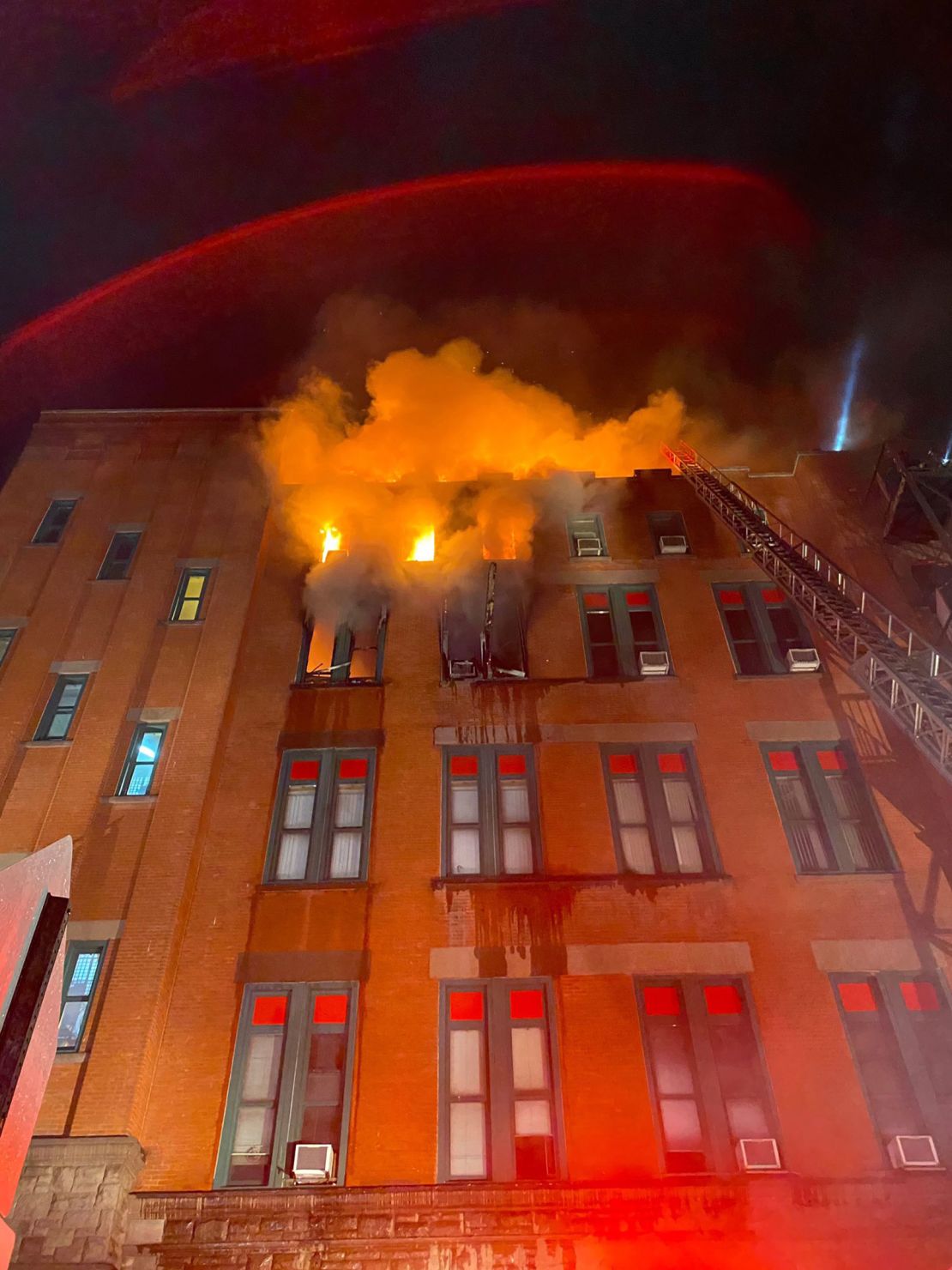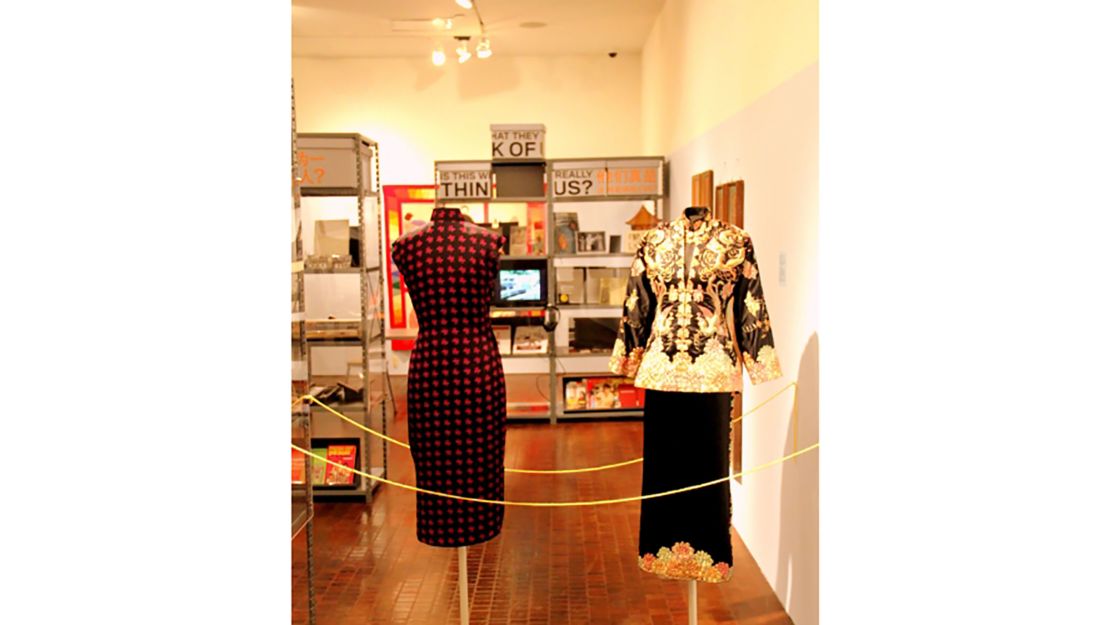A devastating fire Thursday night destroyed up to 85,000 artifacts at New York’s Museum of Chinese in America, a repository of significant cultural materials documenting Chinese life in America.
“It was like how I felt when someone passed away,” museum president Nancy Yao Maasbach said of her first thoughts upon hearing of the fire at the museum in Chinatown.
Maasbach, who has served as the museum’s president for the past five years, said it’s “painful” that people lost items they thought the museum would house safely.

“People understand the devastation because of the rarity of the archives,” she said.
The fire began on the building’s fourth floor and spread to the fifth floor and the roof, according to the Fire Department of New York. At the height of the fire, the department had 200 firefighters and EMS personnel on scene.
Nine firefighters were injured along with one man who was rescued from the building, said FDNY Chief of Fire Operations Thomas Richardson. The firefighters suffered minor injuries while the man required hospitalization.
The building, a former school, was severely damaged by the fire and has been declared unsafe to enter by the city’s buildings department.
The museum, founded in 1980, housed the museum’s Collections & Research Center. The center had a wide array of artifacts, including textiles, documents, photos, memorabilia, oral histories, letters, family albums, legal documents from boat passage and collections of major Chinese American history professors. Most of the 85,000 items are deemed destroyed while about 35,000 were digitized and safely stored on a backup server, Maasbach said.

Many of the old wedding dresses, known as cheongsam, that people donated would annually be showcased in the windows of Macy’s during the lunar new year. But the new year arrived sooner than usual this year, and the dresses were still in the museum, Maasbach said, dejectedly.
The collection included restaurant menus from some of the earliest Chinese restaurants that opened in Manhattan’s Chinatown in the early 1900s. The menus illustrated how the restaurants catered to a more Western palate rather than traditional Chinese meals.
For example, “fortune cookies are definitely American,” Maasbach said.
Letters written home to China from young men working in the United States were part of the collection. Known as bachelor societies, the men who traveled to the US to help their fathers and uncles with work and to send money back home formed close bonds. Most ended up staying here, Maasbach said.

Their letters are particularly powerful because those men faced discrimination, Maasbach said. It was difficult for them to find spouses because so few Chinese American women were in the country and others didn’t want to marry them, she said.
Maasbach noted that museum had many relics that stemmed from the Chinese Exclusion Act and documents related to it may now be lost. The federal law, enacted in 1882, placed severe restrictions on Chinese immigration until it was repealed in 1943, according to the US Department of Justice.
Besides the museum, the building housed several non-profits that catered to Chinese Americans. Maasbach’s mother learned her first employable skills at one of the centers. Maasbach’s daughter took hip hop classes this summer at the 40-year-old Chen Dance Center in the building. Another center is for senior citizens, which Maasbach said is a large part of the lives of the seniors because the center helps them friends and companionship.
New York City Councilwoman Margaret Chin wrote in a Twitter post: “I attended school when I got here in 1963. It was PS23. 70 Mulberry and the community groups housed here have been a cornerstone to Chinatown. It provides workforce development, cultural programs and a senior center. We will work to make sure vital services aren’t lost.”
The lunar new year begins Saturday. When asked about the gravity of this destruction in light of the new year, Maasbach emphasized that fire occurred in the year of the pig. It’s now the year of the rat, which is thought to bring wealth and success, she said.
According to Hong Kong feng shui consultant So Man-fung Peter, luck is likely to turn better in 2020, compared to year of the pig. Year of the pig is typically a shaky time since it’s the year to offend Tai Sui, or the stars opposite Jupiter, according to Chinese astrology.
Maasbach is hopeful the new year ushers in a clean start. The museum was a major pillar in the national Chinese American community, she said. Because of that, she said they have already seen positive signs in the support received from the community as well as from historical societies throughout the nation.
The museum has created a fundraising site and raised more than $40,000 so far.
“Recover, repair, rebuild” is the new motto of the community moving forward from this destruction, Maasbach said.
CNN’s Elizabeth Joseph contributed to this report



